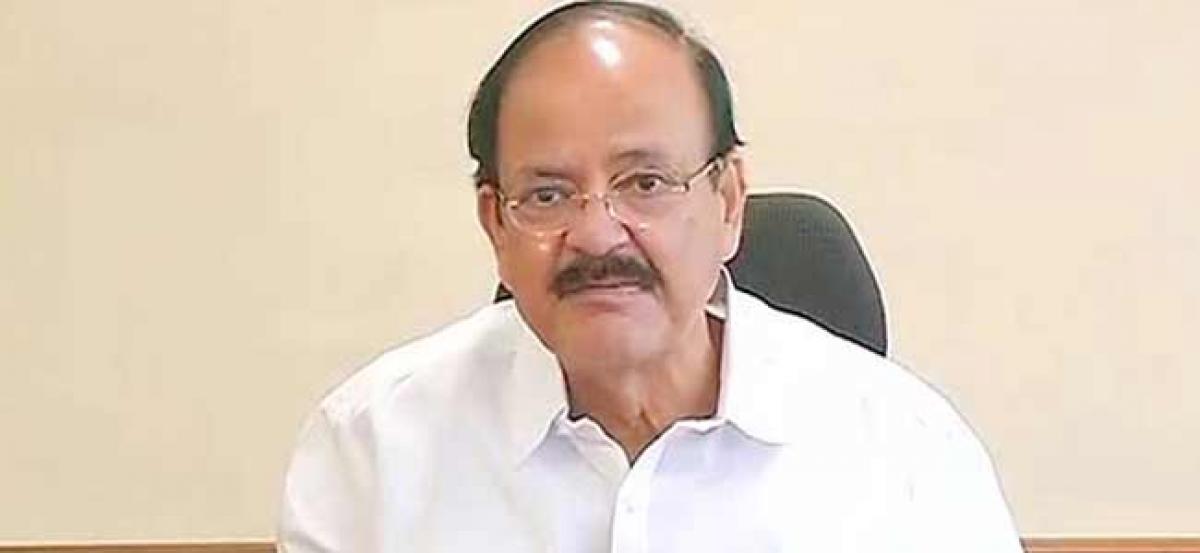Live
- Must-Watch OTT Originals in 2024: The Year’s Best Shows and Movies
- 40 Indian startups secure over $787 mn in a week
- India now formidable force on chess board
- Raghavendra Mutt pontiff visits Tirumala
- Whistleblower of OpenAI found dead in US apartment
- Trump’s US-first policy & India’s strategic latitude
- Chandrababu pays tribute to Potti Sriramulu and Sardar Vallabhbhai Patel
- India may miss TB elimination target
- Revolutionizing Women’s Health: The Era of AI
- Govt bill explains plan for ONOE
Just In

Giving value to human rights is within the DNA of India, which has no history of aggression against any country in the world, Vice President M. Venkaiah Naidu said on the occasion of Human Rights Day, on Sunday.
New Delhi : Giving value to human rights is within the DNA of India, which has no history of aggression against any country in the world, Vice President M. Venkaiah Naidu said on the occasion of Human Rights Day, on Sunday.
Addressing a Human Rights Day function, organised by the National Human Rights Commission (NHRC) here, Naidu said despite various castes and creed, India has remained united and added, "There may have been some violent incidents for which the governments should take action".
"Violence is the worst form of human rights violation. Unfortunately, some people make violence and terror as part of the state policy. Terror has no religion. It poses serious threat to humanity and it is time that the United Nations concluded with the process of defining terror and acted against it by taking stringent action," the vice-president said.
He further stated that personal rights cannot come in the way of national integrity as peace was important for development.
"If there is terror, there is tension and due to this, there cannot be attention for development. Power comes from ballot not from bullet. Those who seek to change system, have no right to kill people. They should join public life and change the system," he added.
Lauding the role of the NHRC, he said it has made a significant contribution towards spreading awareness about the importance of promotion and protection of human rights.
"The Millennium Development Goals cannot be achieved without ensuring protection of human rights. Poverty remains a challenge and it is not specific to India. The whole world needs to work together to eradicate it," the Vice President added.
Addressing the gathering, NHRC Chairperson Justice H. L. Dattu said since 1948, the Universal Declaration of Human Rights">Universal Declaration of Human Rights (UDHR) has continued to be the most important and far-reaching of all United Nations declarations, and a source of inspiration for national and international efforts to promote and protect human rights and fundamental freedoms.
"India, despite multiple challenges, the Constitution and democratic polity, has ensured inclusivity and a respect for human rights. The NHRC has consistently endeavoured to expand the sphere of its work and activities, keeping in with the broad definition of human rights contained in the Protection of Human Rights Act and its expansive mandate, which has also been recognized by the Supreme Court," Dattu added.
Marking the day, the vice-president also released three NHRC publications, carrying articles on important aspects of human rights issues by eminent persons as well as a book titled ' Standard Operating Procedures (SOP) for Combating Trafficking of Persons in India'.

© 2024 Hyderabad Media House Limited/The Hans India. All rights reserved. Powered by hocalwire.com







